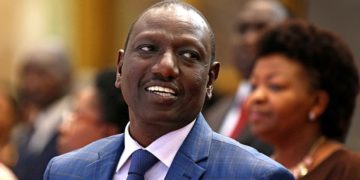[ad_1]
2020-04-22 11:15
The brutal enforcement of the hard lockdown beyond 10 April, by a state that is so demonstrably incapable of supporting its citizens, has devastated the ability of millions of South Africans to earn a living, writes John Steenhuisen.
It is time to end the hard lockdown.
Over the past week it has become abundantly clear that South Africa cannot afford even one more week of the hard lockdown that has already devastated our economy and the ability of many people to obtain the food they need to survive.
And, as Professor Salim Abdool Karim – the government’s leading expert on the coronavirus epidemic – pointed out last Sunday: “We’ve already reaped the benefits of the lockdown. I’m not sure how much more the lockdown can help us.”
Although Karim subsequently tried to walk back his comments by claiming that “it is not my domain to comment” on whether or not the lockdown should be extended, it is clear that many experts have come to regard the current hard lockdown as wholly unsustainable.
Wits University Professor Alex van den Heever has urged the government to replace the hard lockdown with a four-level “risk adjusted strategy” similar to the DA’s Smart Lockdown proposal.
Meanwhile, a group of 19 medical professionals have warned that the “ongoing ‘hard lockdown’ will likely cause far greater suffering in the short and long term than the pandemic itself”.
Right from the start, the signs were there that it would be dangerous to simply “copy and paste” the hard lockdowns implemented in countries like China, Italy, and other more developed nations for an extended period of time.
Unlike those countries, South Africa has 10 million people who are unemployed, 30.4 million people who are trapped in poverty, millions of people who live in informal settlements and work in the informal economy, and an incapable and bankrupt state that lacks the capacity to support millions of poor and hungry people during a time of crisis.
That is why, after two weeks of hard lockdown, on 10 April, the DA warned that blindly extending the hard lockdown would create an economic disaster that will put thousands of lives at risk from hunger and destitution.
We urged the government to instead adopt our Smart Lockdown model, which would enable us to responsibly begin resuscitating the economy so that people could put food on the table.
But the government ignored the warnings.
Instead, they extended the hard lockdown until 30 April, applying a rich-world model that is inappropriate and out of touch with the realities of life in South Africa.
Since 10 April, we have witnessed the devastating yet entirely predictable consequences of President Cyril Ramaphosa’s refusal to switch to a Smart Lockdown.
Our incapable state, led by people like Bheki Cele, Fikile Mbalula, Lindiwe Zulu, Lindiwe Sisulu, Nkosazana Dlamini-Zuma, Ebrahim Patel and Mmamoloko Kubayi-Ngubane, have utterly and completely failed to look after citizens who were no longer allowed to look after themselves.
Across the country, ANC councillors have looted money meant to buy food parcels, and have abused their power to only give food to ANC voters.
The state has harassed and abused informal traders trying to sell food.
The UIF application system, meant to support formal sector workers who have lost their salaries, collapsed as soon as it was launched.
Instead of helping citizens, the police and army abused people in the streets for going to buy groceries.
The government vindictively and senselessly banned the export of agricultural products, leaving farmers unable to pay their workers. And while food trucks were being looted by hungry and desperate people, the government banned the sale of cooked food.
Our incapable and corrupt state apparently expected people who already lived hand-to-mouth or month-to-month before the hard lockdown to survive without any support whatsoever.
As people became evermore desperate, the state simply doubled down on the draconian measures.
As a result, within the space of four weeks, the hard lockdown evolved into a grotesque abuse of power by the ANC government that threatens the very foundation of our democracy.
But the crisis doesn’t end there.
The state has also entirely failed to ramp up capacity and expand testing, rendering useless the entire premise of the hard lockdown.
As Professor Karim explained during his presentation to the country, the goal of the lockdown was never to eradicate the virus from our shores.
Instead, the aim was to ramp up capacity so that we were testing tens of thousands of people every day and rapidly increasing the amount of hospital beds and personal protective equipment available in the country.
But our incapable state has wasted the four weeks of hard lockdown.
We are still averaging fewer than 7 000 tests per day and, apart from in the Western Cape, we have seen very little evidence of the health department having significantly expanded treatment capacity.
We cannot go on like this.
The President needs to immediately put in place the necessary measures to end the hard lockdown on Monday, 27 April.
He must replace the hard lockdown with a Smart Lockdown that enables most people to get back to work immediately while enforcing strict hygiene and social distancing requirements.
And every single person who goes out into public must wear a face mask at all times.
During his address last night, President Ramaphosa hinted at agreement. He said that, on Thursday, he would announce a “risk-adjusted” and “phased” approach to reopening our economy.
Hopefully this means that he will announce the immediate end of the hard lockdown in favour of a Smart Lockdown.
Under a phased Smart Lockdown instead of the current failing hard lockdown, we would be able to respond quickly and with agility as the epidemic evolves.
If there is a spike in a particular area, we could escalate the lockdown measures, including a travel ban, in that region – but not across the entire country.
If the epidemic curve flattens in a given area, we could relax the lockdown there.
It is a context-sensitive, predictable and flexible model that we are all (unfortunately) already used to, because we use the exact same approach during load shedding.
The brutal enforcement of the hard lockdown beyond 10 April, by a state that is so demonstrably incapable of supporting its citizens, has devastated the ability of millions of South Africans to earn a living.
It has not led to a rapid expansion of testing and capacity. It has created an entirely new crisis that threatens to be far more devastating, and cost far more lives, than the coronavirus itself.
Failing to immediately replace the hard lockdown with a Smart Lockdown would amount to gross dereliction of duty by the government and place millions of lives at risk.
– John Steenhuisen is interim leader of the DA.


















